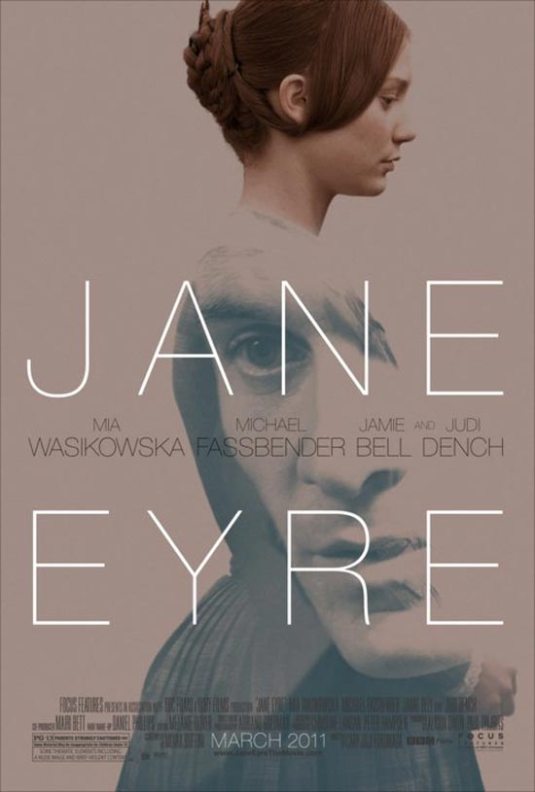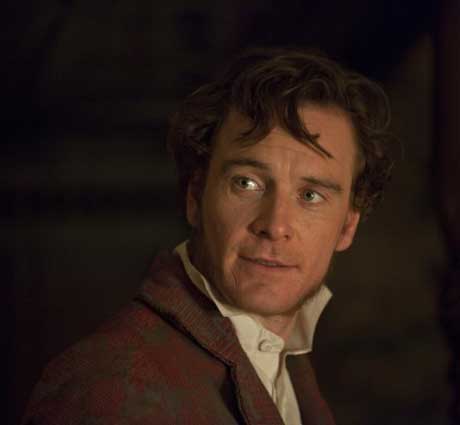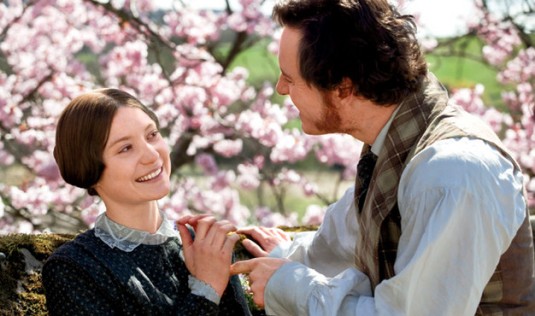Charlotte Brontë’s 1847 novel, Jane Eyre has been adapted dozens of times, for both stage and screen. Therefore it is important that a director of a new adaptation brings something new to the story, a different perspective. This is exactly what the new film adaptation, directed by Cary Fukunaga, managed to achieve.
The film begins with Jane (played by Mia Wasikowska) fleeing Thornfield Hall after the failed wedding and collapsing on the doorstep of St. John Rivers. The majority of the story, leading up to this point is then told through flashbacks as Jane recovers in the home of St. John and his sisters, Mary and Diana.
The film was beautifully shot, with rugged, almost barren, landscapes and a suitably Gothic-looking house for Thornfield. The film was scored by Dario Marianelli, who also composed the scores for Pride and Prejudice (2005) and Atonement (2007).
Some critics have said that they thought Mia Wasikowska too pretty for Jane. Although I concede that Wasikowska is pretty – despite attempts to hide her looks under simple hairstyles and Puritan clothing – she was on the right side of plain to suit the character, as well to appeal to cinema audiences expecting commercial good-looks on the silver screen. Another point in Miss Wasikowska’s favour is the fact that Jane is played, finally, by an age appropriate actress; I think it’s forgotten sometimes that Jane is barely more than a school girl. Miss Wasikowska is a commendable actress who portrayed well Jane’s emotions without being over-the-top. She managed to convey convincingly Jane’s inner turmoil whilst maintaining a placid expression. She was a strong presence and I felt that she and Michael Fassbender as Mr Rochester had good chemistry together.
One thing I worry about when a new film or television series based on an old novel is produced, is that in order to appeal to a modern audience, it will be “sexed up” (as allegedly the new adaptation of Wuthering Heights will be). Thankfully, with Jane Eyre, this was not the case. A bedroom scene between Jane and Rochester (when she saves him from being burned to death) could have easily led to a full-on make-out/sex scene in a modern adaptation. I was rather glad to see, therefore, that Jane stayed true to her modest character and walked away before things got heated. Good girl.
The romance between the two leads was sweet. I especially liked the scene in the rain after Rochester proposed when he and Jane ran laughing into the house and were seen kissing by Mrs Fairfax. On catching her eye, Jane gave her a radiant smile and ran upstairs, unashamedly happy. I liked seeing a playful side to Jane and Rochester’s relationship as goodness knows it doesn’t stay light-hearted for long.
I felt the ending was a little abrupt – I had expected to see Rochester regain his sight (which is what happens in the book) instead of the film ending with him blind and unkempt. However, that would have made the film even longer AND it was romantic to see that Jane loved him unconditionally, and thus the viewer is encouraged to follow suit and love Rochester despite the fact that he’s maimed.
In conclusion, I throughly enjoyed this film. It was touching, emotional, tense and finally, heart-warming and I think it was a worthy representation of Charlotte Brontë’s classic novel.




